Program Graduates
Josh Smith
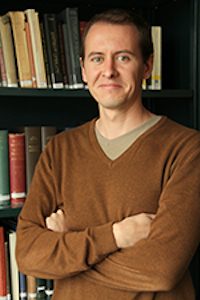
The post-bacc program at UCLA was professionally and personally rewarding. It provided me with a level of philological training in Greek and Latin that was much needed after a late start into the field of Classics. An undervalued part of that training is the need to explore a wide variety of authors and texts. I was able to do that at UCLA both because of the faculty’s diverse interests and the program’s willingness to allow us to take different kinds of courses including graduate seminars and courses in other departments. I entered the PhD program in Classics at UC Santa Barbara and completed a dissertation on Tacitus, an author for whom my love began at UCLA in the post-bacc program, which was integral in my intellectual and personal growth. Currently I serve as Assistant Dean for Secondary Education at John Adams Academy, in Lincolnville, California, where I have been teaching Latin since 2020.
_________________________________________________________________________________________________________
Caroline Cheung
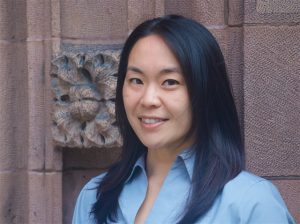
I discovered Classics during my sophomore year at UCLA, and decided to pursue a second major in Classical Civilization. My first major was biochemistry, and I always thought I would work in a laboratory or in the health field after college. By the time I realized I wanted to continue my education in Classics, it was already my senior year. Fortunately, UCLA’s post-baccalaureate program in Classics gave me the opportunity to study not only Latin and Greek but also German and conservation science. After two years in the post-bacc program, I completed an MA in Classical Archaeology at Florida State University and a PhD in Ancient History and Mediterranean Archaeology at the University of California, Berkeley. I am currently an Assistant Professor in the Department of Classics at Princeton University, teaching Latin and Roman history and material culture.
________________________________________________________________________________________________________
Henry Gruber
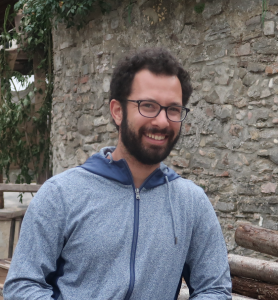
When I came to the post-bacc program, I had never studied Greek, and my Latin was extremely rusty. In two years at UCLA, I made progress in both languages (though Greek, you will learn, is always a telos). I also had excellent mentorship, from professors who gave me individual attention, cared about my progress, and could give me honest advice and counsel about the at-times-intimidating world of graduate school. I had opportunities to get a sense of what academic life was like–I presented at graduate student conferences, worked as a research assistant in the history department, and for the first (but not last) time graded undergrad papers. I’m now in my final year in Harvard’s history department, where I’m writing a dissertation, “Wars and Rumors of War: Archaeology, Violence, and the End of Roman Spain.” And though my research interests have taken me out of the classical world, the language training, preparatory work, and academic experience I got from my two years at UCLA aid me in my work every day. If you are serious about pursuing a higher degree and think you don’t have the language background necessary, I cannot recommend the UCLA Post-Bacc highly enough.
_________________________________________________________________________________________________________
Cherie Hamilton
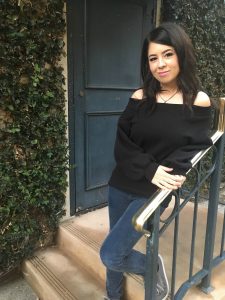
Attending the Post-Baccalaureate Program in Classics at UCLA was extremely beneficial for graduate program preparation. The coursework in Greek and Latin really helped with advancing my translation skills, and the freedom to take graduate-level seminars helped fill in the gaps that my undergraduate program left empty. The Post-Baccalaureate Seminar also provided a plethora of general information that helped mitigate the stress of applying to graduate programs. I am now pursuing my PhD in Comparative Literature at the University of California, Riverside, with a focus on Latin and Italian literature.
_________________________________________________________________________________________________________
Bradley Hald
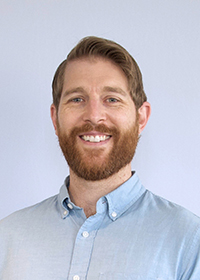
I spent much of the Post-Bacc. year working on improving my Greek and Latin, as most do, and for that, it was extremely useful. But the program also gave me a chance to stretch my legs intellectually, both in the setting of graduate seminars and in my own extra-curricular research (with generous faculty help). I was encouraged to explore my interests in Augustan poetry as well as Classical Greek prose. As it turned out, I have done post-graduate research in both fields: my M.A. thesis was on Vergil’s Georgics, and I finished a doctoral dissertation on Thucydides’ History in 2020, both at the University of Toronto. The academic training I received at UCLA, together with the invaluable practical guidance through the grad-school application process, played a decisive role in confirming my academic ambitions in my own mind and allowing me to pursue them.
_________________________________________________________________________________________________________
Spencer Hunt
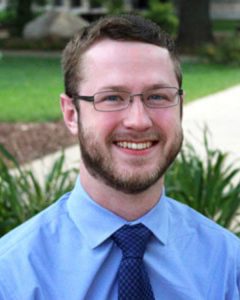
My year in the UCLA post-baccalaureate program in Classics was the catalyst that has enabled all of my subsequent graduate training. I entered the program with limited Latin and a vague notion of what graduate school and an academic career entailed. After the program, I felt well-equipped to meet the challenges of the academy. The language training at UCLA quickly rectified years of personal negligence in my Latin education. Furthermore, the program’s post-baccalaureate seminar prepared me for the unique challenges of life in academia. When the demands of graduate school or the realities of academic careers blindside my colleagues, I often could thank this seminar for helping me to anticipate and often prepare for such hurdles. The program at UCLA enabled me to find success at Western Michigan University, where I earned an M.A. in history. I continue to rely on my UCLA training in my current doctoral program at The Medieval Institute at the University of Notre Dame, where I study concepts of and responses to apostasy in Christian and Islamic Spain.
_________________________________________________________________________________________________________
Nathan Kish
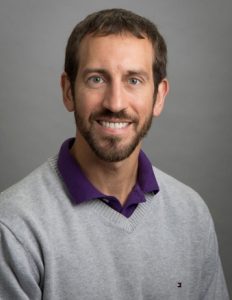
The two years I spent in UCLA’s post-bacc program was essential for my career and much fun to boot. I chose UCLA over the other post-bacc programs because I was attracted to the way post-bacc students were integrated into the department’s normal class schedule. I also appreciated that I had the opportunity to enroll in classes that other departments offered. This format allowed me to work on my writing and research in addition to my languages and to get to know a large number of the faculty. When I reflect on the courses that proved fundamental for my development as a scholar and teacher, several of these were classes I took as a post-bacc: Greek Orators (Kathryn Morgan), Statius (Mario Telò), Survey of later Latin literature (Amy Richlin). The last two were graduate-level courses, and the opportunity to study alongside graduate students is another strong advantage of the program.
I was so impressed with UCLA’s Classics department that I stayed for my graduate work, writing a dissertation on Latin rhetorical invective under the supervision of Amy Richlin. Since completing my Ph.D. (2018), I have held appointments at Cornell College (2018-2019) and Tulane (2019-2022). Currently, I am Visiting Assistant Professor in Classics/Ancient Studies at Scripps College in Claremont, CA. At each stop in my career, I continually find myself thinking back to the classes I took as a post-bacc—and digging through old folders!—as I plan what I want to share with my students and how.
_________________________________________________________________________________________________________
Anna Leinberger
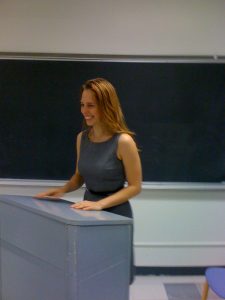
Although I attended a spectacular undergraduate liberal arts school, it was still a small school with fewer academic options than a large research institution like UCLA. The Post Bacc program not only gave me a chance to study further Latin and Greek, but it also gave me the chance to explore interests beyond those that my undergraduate college had offered. That opportunity shaped and furthered my research interests and has been critical in helping hone my focus for my future academic aspirations. While further researching those interests I have taken a detour into the world of publishing and am currently an acquiring editor at Berrett-Koehler Publishers, where I sign books largely in the areas of communication, conflict resolution, gender, and social justice. The advising and opportunity afforded me at UCLA were absolutely critical to both my current career success and my future plans to return to academia.
______________________________________________________________________________________________
Katie Lindsay
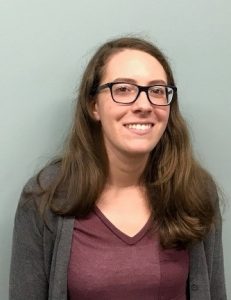
The post-baccalaureate program at UCLA helped me to feel confident with the languages again after a two-year “break” from Classics after graduating with my BA. I believe that the post-baccalaureate certificate helped me to be a more competitive candidate for the MA programs that I applied to and allowed me to receive very useful advice for the graduate application process, making it a little less daunting. Because of the classes that I took in the post-baccalaureate program, I was able to enter straight into a graduate-level Homeric Greek class without having to complete a stylistic review course when I started my MA program, which let me complete my required language course credits sooner. Since graduating with my MA in Greek archaeology from Florida State University in 2019, I have been teaching Latin (7th-12th grades) at Thales Academy in the Raleigh, North Carolina area. I currently teach Latin II-AP and currently serve as the Foreign Language Department Chair.
_________________________________________________________________________________________________________
Alyson Melzer
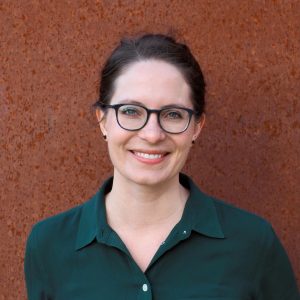 .
.
My time at UCLA was a vitally productive one for improving my Greek and Latin, and for providing me with the skillsets needed for grad school. The support I had from the postbacc program while applying to grad school was invaluable, and the community of friends and colleagues I made while there is still a part of my life today. After two years in the Postbacc program, I joined the Department of Classics at Stanford University and earned my PhD in 2020. After time as a postdoctoral fellow at Stanford and Visiting Assistant Professor at the University of Notre Dame, I am now an Assistant Professor in the Department of Classical Studies at Indiana University Bloomington. I teach classes on Ancient Greek literature and culture while researching Greek intellectual history, performance aesthetics, literary criticism, and 5th-century theater.
_________________________________________________________________________________________________________
Ian Silva
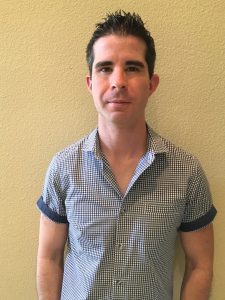
I began formal study of Greek and Latin my junior year after transferring to university from city college. Though I knew upon graduation that I wanted to pursue graduate studies in classics, with a focus, especially on Roman poetry, I felt that my languages needed more work, especially since, on paper, I only had two years of study. To that end, UCLA’s post-baccalaureate program in Classics was the perfect fit. It allowed me to spend a year of intensive language study in diverse reading courses with excellent faculty. Particularly useful for my purposes was taking Latin prose composition, which the smaller department from which I came did not offer. One of the best aspects of the program I found to be the post-baccalaureate seminar. This seminar proved to be invaluable in preparing me for an exacting graduate application process. The feedback I got from faculty on writing samples and personal statements, to say nothing about the basics regarding what to expect in interviews and on-campus visits, made me a much stronger candidate than I otherwise would have been. Incidentally, UCLA is also one of the loveliest places I have had the opportunity to work in.
I am currently a sixth-year PhD candidate in Classics at Princeton. Though the post-baccalaureate program at UCLA did not prepare me for the rigors of winter on the east coast, it certainly made me confident in my ability to thrive in a challenging graduate environment, and I am fortunate and grateful to have found such support and guidance there.
_________________________________________________________________________________________________________
Anastasiia Starovoitova
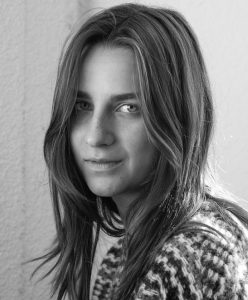
I came into the Post Baccalaureate program with a BA in Liberal Arts majoring in Comparative Literature from King’s College London. During that time I did readings on Ancient Greek philosophy. I did not, however, really have a chance to study ancient languages until after my undergraduate studies. Knowing that my head belonged in research and especially in Ancient Greek philosophy, I had to find a way to get into the Classics graduate program. Post-Baccalaureate program acted as the perfect bridge not only between undergraduate studies and graduate school but also between the fields. I spent two years at UCLA and it equipped me with the necessary skills in ancient languages, as well as strengthened my academic foundation with classes in Roman history, Greek tragedy, literary theory, and ancient philosophy.
In addition, Post Baccalaureate program offered help and guidance through the challenging process of Grad school applications, which would have been a more chaotic experience otherwise. Currently, I am a PhD candidate in Classics at USC working on my dissertation on cosmological aspects of Seneca’s ethical thought. I also have the advantage of having participated in several Graduate seminars with the brilliant faculty at UCLA.
_________________________________________________________________________________________________________
Madeleine St. Marie
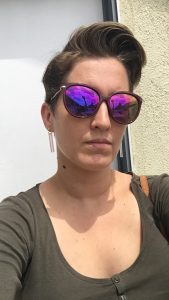
I am currently a PhD candidate in History at the University of California, Riverside, where I work on Late Latin paragon Sidonius Apollinaris. The UCLA post-bacc in Classics allowed me to be competitive for graduate school by pushing me to hone my ancient language skills after considerable time off from undergrad. The graduate Augustan poets seminar was one of the most challenging and transformative courses I’ve taken in my academic career, not only leaving me with a great appreciation for Latin poetry (which I disliked before!) but also helping me gain a better understanding of the Latin language more generally.
_________________________________________________________________________________________________________
Julianne Stratman
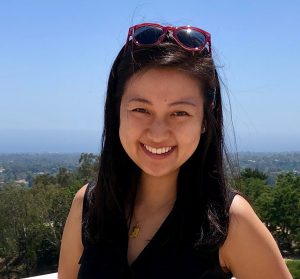
The language training I received in the postbacc program at UCLA was a vital tool in my graduate studies at Emory University. Having a solid background in ancient languages not only helped greatly with graduate coursework in Greek literature and history but also helped deepen my appreciation for the relationship between text and image. My dissertation examined the evolution of depictions of the Gigantomachy on 6th and 5th-century Attic vases and being able to engage with the ancient literature of the myth and hundreds of inscriptions on the pottery enhanced my research. In the spring of 2020, I graduated with my PhD in Art History. I now work to promote the public humanities as the Programs Manager for the Arizona Humanities Council, the state affiliate of the National Endowment for the Humanities
_________________________________________________________________________________________________________
Katie Tardio
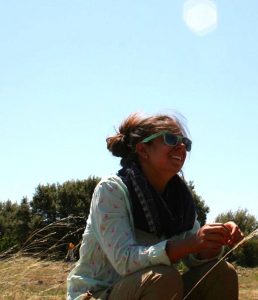
I am currently a PhD Candidate in the Department of Classics at UNC-Chapel Hill, working on ancient Roman foodways, landscapes, and economics. I can honestly say I would not be where I am today without the UCLA Post-Baccalaureate program in Classics. I came to Classics late in my undergraduate career at UC Santa Barbara and struggled greatly with both ancient Greek and Latin, but especially Latin. I began to see the ancient languages as a necessary evil for my archaeological studies, making my work extremely discouraging. Over the course of my two years in the Post-Bac program, however, and with excellent guidance, I was finally able to overcome my struggles. I was not only accepted to an excellent graduate program but with continued work, was certified to teach Latin at the undergraduate level in the Spring of 2018. The Post-Bac program gave me an invaluable experience that has allowed me to excel in my graduate career.
_________________________________________________________________________________________________________
Sanjaya Thakur
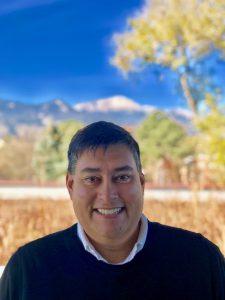
Professor and Chair of Classics, Colorado College
My year as a UCLA post-bacc allowed me to take numerous courses in ancient Greek, a language I began only at the very end of my undergraduate career. In addition, I took a number of graduate survey courses and seminars, classes that were tremendously beneficial in preparing me for graduate school and beyond. One of those courses, a seminar on Athenian topography taught by Sarah Morris, eventually led to a project for which I was awarded a Fulbright Fellowship. A seminar on the Age of Augustus taught by Robert Gurval helped broaden my knowledge of the period beyond canonical texts.
I currently hold the Judson Bemis Professorship in the Humanities at Colorado College. In 2022-23 I am an Elizabeth A. Whitehead Distinguished Scholar at the American School of Classical Studies, Athens. I am also serving a three-year term (2021-23) as Director of the Classical Summer School at the American Academy, Rome.
_________________________________________________________________________________________________________
Tony Vivian
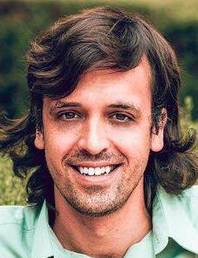
UCLA’s post-baccalaureate program in Classics transformed me from someone contemplating graduate school to a motivated and viable candidate. I would not have been accepted to the PhD programs as I was without the post-baccalaureate program’s language training and rigorous post-bacc seminar. The latter helped me through the application process and brought my applications and writing sample up to speed. I received a PhD in History from UCLA in 2020 and am currently working for the History Department at UCLA as a lecturer.
Chloe Wheeler
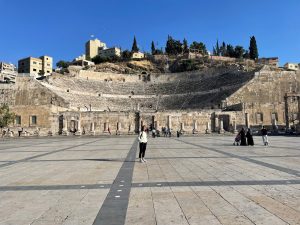
My year in UCLA’s Post-Baccalaureate Program in Classics was enriching and foundational for my future studies. I entered the remote version of the program having spent a year away from my classical languages—during my undergraduate years, I studied ancient Greek for 3 years and Latin for 1 semester; I moved to Spain to teach vocational English after graduation. The pandemic in March 2020 brought me back to Los Angeles and to my interest in Classics.
I spent the academic year of 2020-2021 refining my Classical Greek and Latin and working with scholars in the Classics Department at UCLA (whose research I had discovered while writing my undergraduate senior theses). Not only did I improve my Classical languages: as an enrolled Post-Bacc student, I also took two graduate seminars in UCLA’s Spanish Department and 3 quarters of Modern Standard Arabic. The extent of the Post-Bacc’s influence on my academic life cannot be overstated: thanks in large part to the mentorship, time, support, and friendship of the faculty and community of the Classics and Spanish Departments at UCLA, I am currently in my second year of a Ph.D. in Comparative Literature at Princeton.
The scholarly network and graduate-level opportunities I found at UCLA continue to shape my research areas—I am working on publishing a paper from one of my UCLA Spanish seminars. Furthermore, the intense philological training from my Greek and Latin seminars will forever underlie how I approach my language-centered research interests—in Greek tragedy and its reception in Golden Age Spanish Literature; in the role of myth-making in conquistador narratives; in Andalusian lyric poetry and plurilingual forms of “Othering”; in the role of poetic embellishment in Classical Arabic literary theory. UCLA’s Post-Bacc Program in Classics was essential to my formation as a scholar.

